From Latchkey Kids to Helicopter Parents
What Happened to Gen X and Why Can't They See It?
Welcome to Polymathic Being, a place to explore counterintuitive insights across multiple domains. These essays explore common topics from different perspectives and disciplines to uncover unique insights and solutions.
Today's topic highlights a glaring blindspot that I feel most Gen X people, at least on social media, seem to have in feeling they remain the badasses who grew up as latchkey kids. Let’s find out if that’s true.
Intro
The memes about Gen X are legion. They harness the rough-and-scrabble independence of the late 1970s and early 1980s, the rebellion of the heavy metal hair bands, the founding of Silicon Valley, and more. Gen Xers were raised with grit and fast-tracked to adulthood. But then something weird happened:
Gen X became the Helicopter Parents and Karens1 we’ve grown to hate over the past 15 years.2
The problem is, the badass kids of Gen X, as
3 shows in her essay Why Gen X Doesn’t Give A F*ck, are blind to that very important point. Her Substack celebrates the nostalgia coupled with the cognitive dissonance of what Gen X became.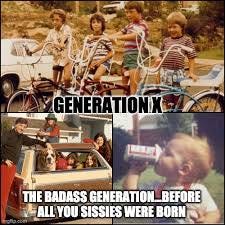


Background
Gen X is generally referred to as those born from 1965-1980. They’re the kids of the early boomers and late G.I. Generation. They came of age during the 1980s in the world of Fast Times at Ridgemont High (which will be my go-to sex-ed video for my kids.) Porky’s, Stripes, Footloose, and more. They were also raised during one of the craziest surges of crime we’ve seen in the country. They drank their school lunch milk from containers plastered with the faces of missing children. They played in the streets with the sounds of gunshots and sirens in the distance.
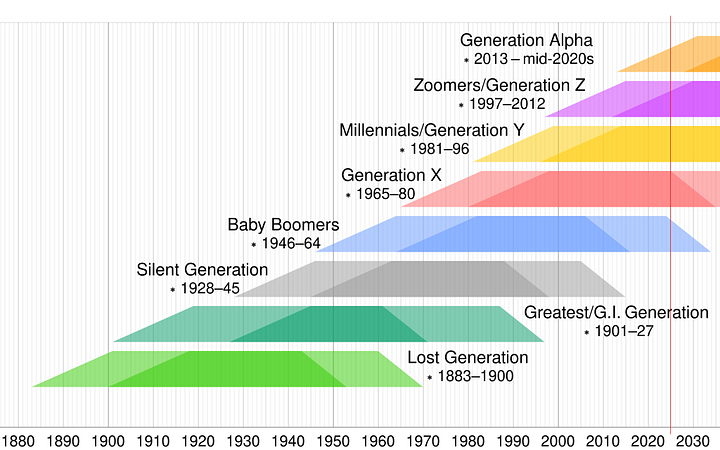
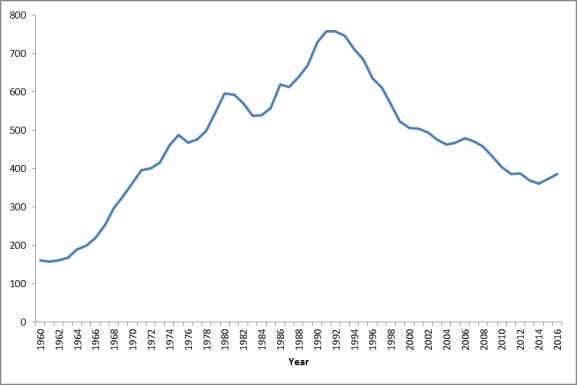
They were also the Latchkey kids. When they came home from school, there was almost no adult-organized play outside of school sports. They learned to make their own dinners and raise their siblings until Mom and Dad came home late from work. They grew up quickly and bore responsibilities that shock our sensibilities today.
Simply put, they were kind of badass. So what happened?
The Blind Spot
Back to the essay by Liz. She makes an interesting comment toward the bottom, which epitomizes the blindspot and sets up the cognitive dissonance I see so often:
Latchkey kids grew up to understand the importance of being a plugged-in parent and achieving work-life balance.
That is certainly what I hoped we’d see. Except that’s not what we see. They turned into helicopter parents, both working and eating drive-through fast food while shuttling their kids from one sport to another, with only slightly lower rates of divorce. Their kids weren’t latchkey kids; they were suffocated kids, victims of the devouring mother who didn’t allow them to experience life and grow up.
Fellow Substacker
, a Gen Xer who gets it, described it like this on Notes:“We were completely wild and unsupervised…and then we turned around and wouldn’t let our kids do anything! I was guilty of that myself…somehow I felt my rough and tumble, borderline delinquent childhood was something I wanted to protect my kids from. In retrospect that was a huge mistake.
Lest we think Gen X’s lack of f*cks extends to their role in society and consumerism, remember, Gen X were young adults in the late 1990s and early 2000s, dead center of keeping up with the Joneses and the explosion of the hyper-consumerism and cliques epitomized by Sex in the City and Desperate Housewives. They were all about status for themselves and their children, which led to the upper-class cheating scandals for college admissions just a few years ago, where all of them were Gen Xers.
Even much of the social division you see today between MAGA and Woke is led by Gen X and footsoldiered by Gen Z. Yes, there are many others involved, but by and large, they aren’t the activists I see. When I look at social media, exemplified by Twitter, it’s essentially a Gen X call, a Gen Z response, and subsequent mayhem.
Now, none of this really surprises me. They went from Latchkey Kids to Helicopter Parents because they over-indexed as humans typically do. In their zeal to protect their children from the very real dangers that existed when they grew up, they miss three big things:
The world is much safer today than it was when they were children. Violent crime plummeted just as they entered adulthood.
Trauma is not necessarily bad and helps create antifragility. Trying to have their children avoid that trauma creates fragile humans.
They care more deeply and passionately than most others. As such, they don’t view their change as an over-correction. They view it as caring. You can see this imprint on how Gen Z feels like they must care about everything.
The counterintuitive part is that the very things that challenged them and sometimes traumatized them are what give them this internalized grit, strength, and the idea that they don’t give a f'*uck. They deride weakness yet deny their children the same experience. They hate participation trophies and yet were the ones handing them out. Gen X became more than what they hated and raised a generation that they loathe.4 They can’t see who they became and create memes with zero irony like this:
Gen X became more than what they hated and raised a generation that they loathe.
They’ve never let go of the badass image in their minds, and it blinds them to the harm they’ve been doing for decades. It’s not only in raising Gen Z that Gen X has lost their grit and ‘don’t care’ attitude. As an elder Millenial, I met them in the workforce. They were middle managers by the time I got there. There were four things to note:
There weren’t a lot of Gen X in the big companies. They got slaughtered in the layoffs in the 90s. There were tons of Bommers and a surge of Millenials when they figured out their employee base was aging out.
The Gen Xers who remained were survivors. There wasn’t a middle finger amongst them, and they certainly gave a f*uck about keeping their heads down. They were often the managers we called ‘The Frozen Middle’ because the senior leaders and the junior employees couldn’t get them to take any risks.
The ones who made their way into other ventures were also the yes-men. They were the McKinsey analysts for Perdue Pharmaceuticals who sold us the opioid epidemic. They’ve been the policy wonks selling a bloated government and the PTA members pulling power from the parents to the school boards and unions.
They’re also skilled at gaslighting anyone who points out these contradictions. Boomers may be the ‘me generation,’ Gen Z may be the ‘triggered generation,’ but Gen X is the gaslighting generation, and there’s been a lot of it in my career.
To be frank, I’ve seen some of the worst sycophants and conflict avoidance from Gen X. Their examples are sprinkled through dozens of essays here on Polymathic Being, and they were the bane of the young Millenial team I led from 2015 to 2019. It was disheartening to see the Boomers embrace and support my young and diverse team while Gen X, by and large, shit on them. All my best leaders were Boomers, and all my worst leaders were Gen X.
I admit that I have a bias when it comes to Gen X carrying the nostalgia of being badasses when I’ve experienced the opposite. My bias increases when I bring up these examples and Gen X is triggered as their internalized identity as badasses crash headfirst into the reality of becoming helicopter parents and devouring mothers. It’s a cognitive dissonance well captured in this meme:
Summary
I constantly see the Gen X memes and the underlying pride in which they’re posted, and I appreciate the nostalgia; I think it’s incredible what that generation dealt with in their formative years. Yet it drives me nuts how blind they are, epitomized by Liz and her essay, and how wrong her conclusions are. Frankly, Gen Xers care more than anyone; it’s just focused on the wrong things.
That's why they became the helicopter parents of Gen Z.5 Combine that with an ego still living in the 80s, and you’ve got a real challenge. This contradiction turns those memes into projections and sets a hair trigger for cognitive dissonance and a willingness to gaslight anyone who says differently.6
That said, I think they also have the cure for many of the issues we face today. I also think it’s not too late for them to get back to their roots. They’re on the brink of becoming grandparents and will, hopefully, realize their over-correction.
Just imagine how powerful they could be if that nostalgia for grit and gumption settles in and they bring back sanity to senior leadership positions at work and in government. Gen X went from Latchkey Kids to Helicopter Parents, but perhaps they can save us.
Why do you think Gen X underwent this transformation? Why do so many not see it?
Did you enjoy this post? If so, please hit the ❤️ button above or below. This will help more people discover Substacks like this one, which is great. Also, please share here or in your network to help us grow.
Polymathic Being is a reader-supported publication. Becoming a paid member keeps these essays open for everyone. Hurry and grab 20% off an annual subscription. That’s $24 a year or $2 a month. It’s just 50¢ an essay and makes a big difference.
Further Reading from Authors I Appreciate
I highly recommend the following Substacks for their great content and complementary explorations of topics that Polymathic Being shares.
- by : All-around great daily essays
- by : Insightful Life Tips and Tricks
- by : AI tips for Thinking and Writing
- by : Integrating AI into education
- by : Computer Science for Everyone
I use the term Karen since it’s a useful meme but we all know Gen X would be a ‘Heather.’
Her profile is a perfect example of the meme, “Gen X had to be 30 at 10 and is still 30 at 50.” Gen Xers have an incredible nostalgia bias for the freedom of their past, but they never offered their children that freedom. They also glitch really hard when this is pointed out.
For background on my perspective, I’m what’s referred to as a Xenial. My two older brothers were late Gen X, and I am an elder millennial. I was born in 1981 and lived through the entire tech transformation. My first computer was a used Tandy 386 in the early 90s with 5.25 floppy disks. I had dial-up internet, listening to the screech and squawk of the modem, praying that I had enough bandwidth to get to my AngleFire website and upload the latest awesome animated GIF to give you more raster burn. My first cell phone was in 2004. My kids are Gen Alpha.
In his book 12 Rules for Life, Jordan Peterson addresses this in rule #5: “Do not let your children do anything that makes you dislike them.” Given the timing, this was aimed directly at the center of Gen X raising Gen Z. (also see footnote 4 below)
I hate to have to do this, but you’ll always find the person like
who can’t understand the nuances between generations. Generations leapfrog. The previous generation doesn’t raise the immediate next, in general. Yes, some very early Xers raised Millenials, but do the math and consider the Mean, not the extremes of the distribution. (See the first photo in the ‘Background’ Section above) Especially considering that Gen X and the Millennials waited longer than the Boomers to have kids. By and large, Gen X raised Gen Z. Generations are only 15 years so they leapfrog:Greatest raised Boomers
Silent raised Gen X
Boomers raised Gen Y
Gen X raised Gen Z
Gen Y raised Gen A
I don’t use this term lightly. Just try to point out the discordance of this essay on social media and watch them start glitching hard, as Liz does in this comment thread. (Since I wrote this, she either deleted it or blocked me, but you can find the screenshots here.)





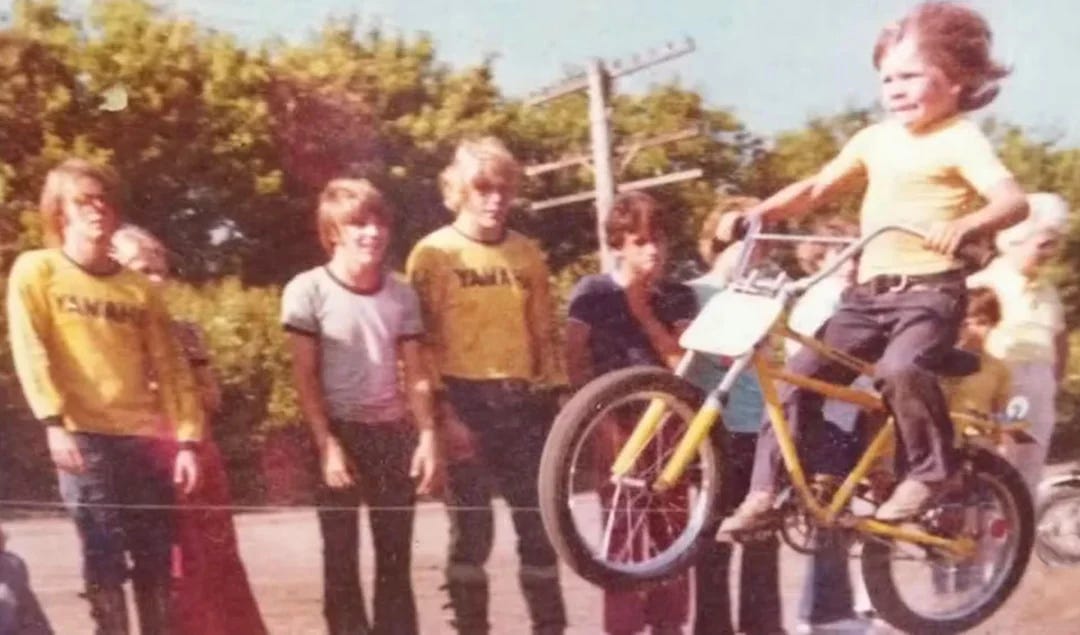


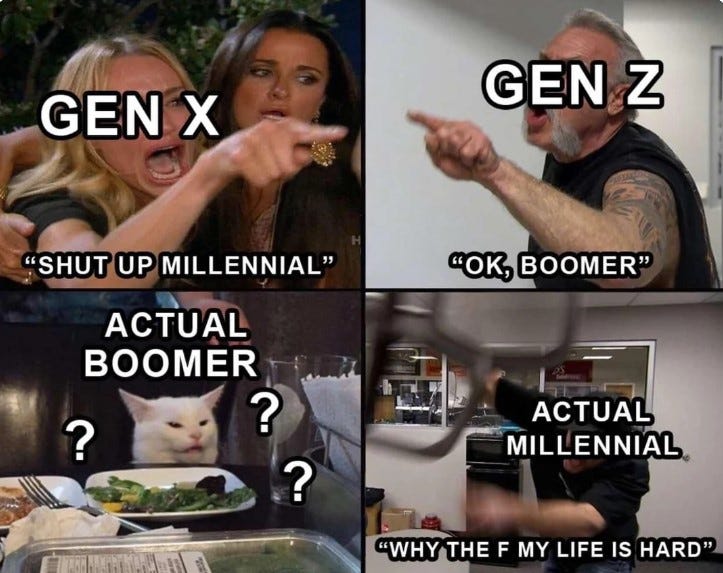
As a young X-er (born in 79), I agree with a lot of what you're saying here. While i don't have kids, a lot of my X peers and family members do, and yes, helicopter is what I've been saying for years. As afraid as middle management, your probably right on that count, but I also believe it's highly dependent on the industry- the boomers were the horrible ones in my experience, then the millennials a close second.
I love Gen Z and I don't understand the hate (which is know is real). But there is definitely a fragility in a lot of these Z kids that unfortunately is a result of what you discussed.
To give X some credit though, we straddled a strange time between zero technology to not being able to live without it. Society is booming and we were born at the beginning of it. I also don't agree that crime is lower, it's just better broadcast, and there are more precautions to combat it (via helicoptering... not to say its the right way to do it).
Anyway, that's my 2 cents, and I personally don't like the Gen X hate that I've been seeing lately. I remember as a kid, I was always told to "show respect for your elders," and now that I'm approaching elder age, I see less and less respect for our generation. It's unfortunate because I waited for the day to be taken seriously, only to be told that I'm a worthless old person.
Lots to parse here. As with anything sociological, political, religious, etc., we tend to view people in blocs; I assume it's one of those "evolutionary survival skills" or somesuch. Discussing these kinds of things always leads to broad generalities, which you acknowledge. I'm a Gen-Xer (77) raised by a Boomer (52) who was raised by a Silent (29), so a three-consecutive generational span there, but my kids are early Z's (01, 02, 04).
Dealing with our childhoods is a complex endeavor, and leads to many different responses. Sometimes, if our childhoods were pleasant, we tend to repeat the mistakes of our parents because "that's how we were raised." If our childhoods were traumatic, we may repeat the mistakes of our parents because "that's how we're conditioned." We may respond positively to trauma and determine never to make the same mistakes our parents did. On the other hand, we may respond negatively to trauma and determine never to "do that to my kids," thus the helicopter parent is born. Both Helicopter Parenting and Karen Syndrome seem to me to be either Gen-X responses to trauma, or Millennial responses to being raised by older Boomers.
In my case, I was an only child of a single father in a small California town whose industries were Timber and Tourism. I had a terribly traumatic school experience through Elementary School and the first two years of High School, but home life was ok. My Dad spent a lot of time with his computer and his Ham Radio and his guitar, and thus I spent a great deal of time entertaining myself. It's one reason I've become a fiction writer, because I entertained myself with storytelling--roleplay with action figures or outside with my imagination, or movies or cartoons--all the time. I never craved extra attention, and that could just be due to my personality makeup. Other kids would have suffered under that, and perhaps become helicopter parents in the sense that "I'm going to be present, unlike my parents," and there you have it.
I also am very grateful that I was raised going to church. Understanding the Biblical stories and the Gospel helped me view suffering as being for a purpose. A lot of other Gen-X kids didn't have that, or resisted it strongly. My Dad was never big on drilling it into me, he just insisted I be exposed to it, it also helped that he was there and active, but I never saw him display hypocrisy. Other Gen-X kids who went to church had a lot of overbearing rules about it, and witnessed hypocritical behavior. I was not a natural rebel. I obeyed my Dad and my Grandparents who helped raise me later, because I knew they loved me.
My last two years of High School we moved because my Dad endured a nervous breakdown. When your dad is waking up from nightmares and eating the cat food, that can be a traumatic experience for any kid. My grandparents moved us and he got treatment, and I got a new start. I learned how to be more resilient, less socially-awkward, stand up for myself, and finished High School in a blue-collar copper mining town that was far less cliquish. I didn't do the rebellion thing. I didn't listen to a lot of Pearl Jam and Nirvana. I didn't wear Docs and Flannel, though I DID play hacky-sack with the stoners.
I am grateful that my Gen-X upbringing taught me independence, and I tried to instill that in my kids. I tried not to be a helicopter, I encouraged them to learn how to entertain themselves, and yet the oldest acts like an X'er and the youngest thinks like a Millennial. Personality differences have a huge effect on how this realizes itself.
I think there are people who loved the 80's because times were simpler and we were forced to find our own identity for survival. We loved the movies and the music but look back as realists. There are others who loved the 80's because they were the popular kids who had friends, two loving parents, and no problems. They look back through nostalgia glasses. Then there are X'ers who actually identify more with the 90's, who listened to Metal and Grunge and rebelled against their parents and smoked weed and don't give a f*ck. Those are different people, and probably the cool grandparents.